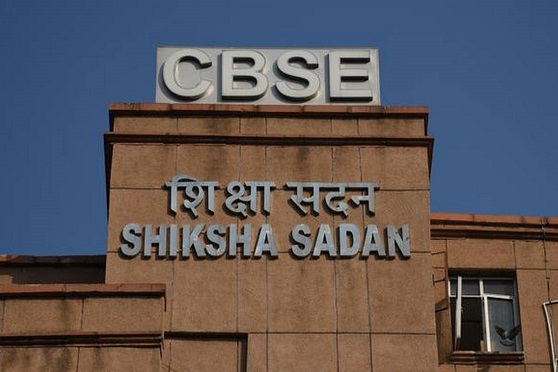Answers that the Central Board of Secondary Education has prescribed for two questions in the sociology paper of its ongoing first-term Class XII board exams are at odds with the content of the board’s own textbook.
Also, the social science paper of the Class X exam offers the same answer option — the correct one — twice among the four answer options against a particular question.
In the Class XII sociology exam, held on Wednesday, Question No. 40 said:
Assertion (A): In Indian nationalism, the dominant trend was marked by an inclusive and democratic vision.
Reason (R): It was democratic because it recognised diversity and plurality.
(a) Both (A) and (R) are true and R is the correct explanation of (A).
(b) Both (A) and (R) are true and R is not the correct explanation of (A).
(c) (A) is true and (R) is false.
(d) (A) is false and (R) is true.
Here the option (c) should be correct going by the content of the chapter, “The challenges of cultural diversity”, in the CBSE-adopted NCERT sociology textbook for Class XII, titled Indian Society.
A paragraph from the chapter says: “In Indian nationalism, the dominant trend was marked by an inclusive and democratic vision. Inclusive because it recognised diversity and plurality. Democratic because it sought to do away with discrimination and exclusion and bring forth a just and equitable society.”
However, the CBSE’s answer key prescribes option (b) as correct.
Question No. 46 in the same paper asked:
What is social about social inequality?
(a) They are social because they are not about individuals but about groups.
(b) They are social in the sense because they are not about economics.
(c) They are systematic and structured.
(d) All of the above.
The relevant excerpt from the chapter, “Pattern of social inequality and exclusion”, from Indian Society goes: “First, social inequality and exclusion are social because they are not about individuals but about groups. Second, they are social in the sense that they are not economic, although there is usually a strong link between social and economic inequality. Third, they are systematic and structured — there is a definite pattern to social inequalities.”
The correct answer should therefore be (d) but the CBSE has prescribed (a).
“Many students stand to lose out because the prescribed answers do not match what has been taught,” a schoolteacher on condition of anonymity said. “The paper has been evaluated already (in keeping with the CBSE’s prescribed answers). It seems that proper scrutiny was not done while developing the answer key.”
Question No. 40 in the Class X social science exam, held on Tuesday, asked the students to match two columns, choosing from four answer options. It said:
Match Column I with Column II and choose the correct option:
Column I Column II
I. Union list A. Computer-related matter
II. State list B. Forest
III. Concurrent list C. Police
IV. Subsidiary matters D. Defence
(a) I-D II-C III-B IV-A
(b) I-A II-B III-C IV-D
(c) I-D II-C III-B IV-A
(d) I-B II-A III-C IV-D
Here, (a) and (c) are identical — and correct. But the answer key prescribes only (a) as correct.
“The CBSE should not deny marks to students who have gone ahead with (c). The students should not be made victims of mistakes by the CBSE,” a student said.
While all the students have already been evaluated on the basis of the CBSE’s prescribed answers, the board has the power to make amendments later.
The Class XII sociology paper has been mired in controversy. It carried a question asking which party was in power in Gujarat during the “anti-Muslim violence” of 2002, which the CBSE later termed “inappropriate” and a “violation” of its guidelines.
However, the textbook, Indian Society, states: “The unprecedented scale and spread of anti-Muslim violence in Gujarat in 2002 took place under a BJP government.”
Students who chose the “BJP” option have been awarded marks, sources said.











